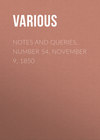Loe raamatut: «Chambers's Edinburgh Journal, No. 443», lehekülg 2
A DUEL IN 1830
I had just arrived at Marseilles with the diligence, in which three young men, apparently merchants or commercial travellers, were the companions of my journey. They came from Paris, and were enthusiastic about the events which had lately happened there, and in which they boasted of having taken part. I was, for my part, quiet and reserved; for I thought it much better, at a time of such political excitement in the south of France, where party passions always rise so high, to do nothing that would attract attention; and my three fellow-travellers no doubt looked on me as a plain, common-place seaman, who had been to the luxurious metropolis for his pleasure or on business. My presence, it seemed, did not incommode them, for they talked on as if I had not been there. Two of them were gay, merry, but rather coarse boon-companions; the third, an elegant youth, blooming and tall, with luxuriant black curling hair, and dark soft eyes. In the hotel where we dined, and where I sat a little distance off, smoking my cigar, the conversation turned on various love-adventures, and the young man, whom they called Alfred, shewed his comrades a packet of delicately perfumed letters, and a superb lock of beautiful fair hair.
He told them, that in the days of July he had been slightly wounded, and that his only fear, while he lay on the ground, was that if he died, some mischance might prevent Clotilde from weeping over his grave. 'But now all is well,' he continued. 'I am going to fetch a nice little sum from my uncle at Marseilles, who is just at this moment in good-humour, on account of the discomfiture of the Jesuits and the Bourbons. In my character of one of the heroes of July, he will forgive me all my present and past follies: I shall pass an examination at Paris, and then settle down in quiet, and live happily with my Clotilde.' Thus they talked together; and by and by we parted in the court-yard of the coach-office.
Close by was a brilliantly illumined coffee-house. I entered, and seated myself at a little table, in a distant corner of the room. Two persons only were still in the saloon, in an opposite corner, and before them stood two glasses of brandy. One was an elderly, stately, and portly gentleman, with dark-red face, and dressed in a quiet coloured suit; it was easy to perceive that he was a clergyman. But the appearance of the other was very striking. He could not be far from sixty years of age, was tall and thin, and his gray, indeed almost white hair, which, however, rose from his head in luxurious fulness, gave to his pale countenance a peculiar expression that made one feel uncomfortable. The brawny neck was almost bare; a simple, carelessly-knotted black kerchief alone encircled it; thick, silver-gray whiskers met together at his chin; a blue frock-coat, pantaloons of the same colour, silk stockings, shoes with thick soles, and a dazzlingly-white waistcoat and linen, completed his equipment. A thick stick leant in one corner, and his broad-brimmed hat hung against the wall. There was a certain convulsive twitching of the thin lips of this person, which was very remarkable; and there seemed, when he looked fixedly, to be a smouldering fire in his large, glassy, grayish-blue eyes. He was, it was evident, a seaman like myself—a strong oak that fate had shaped into a mast, over which many a storm had blustered, but which had been too tough to be shivered, and still defied the tempest and the lightning. There lay a gloomy resignation as well as a wild fanaticism in those features. The large bony hand, with its immense fingers, was spread out or clenched, according to the turn which the conversation with the clergyman took. Suddenly he stepped up to me. I was reading a royalist newspaper. He lighted his cigar.
'You are right, sir; you are quite right not to read those infamous Jacobin journals.' I looked up, and gave no answer. He continued: 'A sailor?'
'Yes, sir.'
'And have seen service?'
'Yes.'
'You are still in active service?'
'No.' And then, to my great satisfaction, for my patience was well-nigh exhausted, the examination was brought to a conclusion.
Just then, an evil destiny led my three young fellow-travellers into the room. They soon seated themselves at a table, and drank some glasses of champagne to Clotilde's health. All went on well; but when they began to sing the Marseillaise and the Parisienne, the face of the gray man began to twitch, and it was evident a storm was brewing. Calling to the waiter, he said with a loud voice: 'Tell those blackguards yonder not to annoy me with their low songs!'
The young men sprang up in a fury, and asked if it was to them he alluded.
'Whom else should I mean?' said the gray man with a contemptuous sneer.
'But we may drink and sing if we like, and to whom we like,' said the young man. 'Vive la République et vive Clotilde!'
'One as blackguardly as the other!' cried the gray-beard tauntingly; and a wine-glass, that flew at his head from the hand of the dark-haired youth, was the immediate rejoinder. Slowly wiping his forehead, which bled and dripped with the spilled wine, the old man said quite quietly: 'To-morrow, at the Cap Verd!' and seated himself again with the most perfect composure.
The young man expressed his determination to take the matter on himself; that he alone would settle the quarrel, and promised to appear on the morrow at the appointed time. They then all departed noisily. The old man rose quietly, and turning to me, said: 'Sir, you have been witness to the insult; be witness also to the satisfaction. Here is my address: I shall expect you at five o'clock. Good-night, Monsieur l'Abbé! To-morrow, there will be one Jacobin less, and one lost soul the more. Good-night!' and taking his hat and stick, he departed. His companion the abbé followed soon after.
I now learned the history of this singular man. He was descended from a good family of Marseilles. Destined for the navy while still young, he was sent on board ship before the Revolution, and while yet of tender years. Later, he was taken prisoner; and after many strange adventures, returned in 1793 to France: was about to marry, but having been mixed up with the disturbances of Toulon, managed to escape by a miracle to England; and learned before long that his father, mother, one brother, a sister of sixteen years of age, and his betrothed, had all been led to the guillotine to the tune of the Marseillaise. Thirst for revenge, revenge on the detested Jacobins, was now his sole aim. For a long time he roved about in the Indian seas, sometimes as a privateer, at others as a slave-dealer; and was said to have caused the tricoloured flag much damage, while he acquired a considerable fortune for himself. With the return of the Bourbons, he came back to France, and settled at Marseilles. He lived, however, very retired, and employed his large fortune solely for the poor, for distressed seamen, and for the clergy. Alms and masses were his only objects of expense. It may easily be believed, that he acquired no small degree of popularity among the lower classes and the clergy. But, strangely enough, when not at church, he spent his time with the most celebrated fencing-masters, and had acquired in the use of the pistol and the sword a dexterity that was hardly to be paralleled. In the year 1815, when the royalist reaction broke out in La Vendée, he roved about for a long time at the head of a band of followers. When at last this opportunity of cooling his rage was taken from him by the return of order, he looked out for some victim who was known to him by his revolutionary principles, and sought to provoke him to combat. The younger, the richer, the happier the chosen victim was, the more desirable did he seem. The landlord told me he himself knew of seven young persons who had fallen before his redoubted sword.
The next morning at five o'clock, I was at the house of this singular character. He lived on the ground-floor, in a small simple room, where, excepting a large crucifix, and a picture covered with black crape, with the date, 1794, under it, the only ornaments were some nautical instruments, a trombone, and a human skull. The picture was the portrait of his guillotined bride; it remained always veiled, excepting only when he had slaked his revenge with blood; then he uncovered it for eight days, and indulged himself in the sight. The skull was that of his mother. His bed consisted of the usual hammock slung from the ceiling. When I entered, he was at his devotions, and a little negro brought me meanwhile a cup of chocolate and a cigar. When he had risen from his knees, he saluted me in a friendly manner, as if we were merely going for a morning walk together; afterwards he opened a closet, took out of it a case with a pair of English pistols, and a couple of excellent swords, which I put under my arm; and thus provided, we proceeded along the quay towards the port. The boatmen seemed all to know him. 'Peter, your boat!' He seated himself in the stern.
'You will have the goodness to row,' he said; 'I will take the tiller, so that my hand may not become unsteady.'
I took off my coat, rowed away briskly, and as the wind was favourable, we hoisted a sail, and soon reached Cap Verd. We could remark from afar our three young men, who were sitting at breakfast in a garden not far from the shore. This was the garden of a restaurateur, and was the favourite resort of the inhabitants of Marseilles. Here you find excellent fish; and also, in high perfection, the famous bollenbresse, a national dish in Provence, as celebrated as the olla podrida of Spain. How many a love-meeting has occurred in this place! But this time it was not Love that brought the parties together, but Hate, his stepbrother; and in Provence the one is as ardent, quick, and impatient as the other.
My business was soon accomplished. It consisted in asking the young men what weapons they chose, and with which of them the duel was to be fought. The dark-haired youth—his name was M– L– insisted that he alone should settle the business, and his friends were obliged to give their word not to interfere.
'You are too stout,' he said to the one, pointing to his portly figure; 'and you'—to the other—'are going to be married; besides, I am a first-rate hand with the sword. However, I will not take advantage of my youth and strength, but will choose the pistol, unless the gentleman yonder prefers the sword.'
A movement of convulsive joy animated the face of my old captain: 'The sword is the weapon of the French gentleman,' he said; 'I shall be happy to die with it in my hand.'
'Be it so. But your age?'
'Never mind; make haste, and en garde.'
It was a strange sight: the handsome young man on one side, overbearing confidence in his look, with his youthful form, full of grace and suppleness; and opposite him that long figure, half naked—for his blue shirt was furled up from his sinewy arm, and his broad, scarred breast was entirely bare. In the old man, every sinew was like iron wire: his whole weight resting on his left hip, the long arm—on which, in sailor fashion, a red cross, three lilies, and other marks, were tattooed—held out before him, and the cunning, murderous gaze rivetted on his adversary.
''Twill be but a mere scratch,' said one of the three friends to me. I made no reply, but was convinced beforehand that my captain, who was an old practitioner, would treat the matter more seriously. Young L–, whose perfumed coat was lying near, appeared to me to be already given over to corruption. He began the attack, advancing quickly. This confirmed me in my opinion; for although he might be a practised fencer in the schools, this was proof that he could not frequently have been engaged in serious combat, or he would not have rushed forwards so incautiously against an adversary whom he did not as yet know. His opponent profited by his ardour, and retired step by step, and at first only with an occasional ward and half thrust. Young L–, getting hotter and hotter, grew flurried; while every ward of his adversary proclaimed, by its force and exactness, the master of the art of fence. At length the young man made a lunge; the captain parried it with a powerful movement, and, before L– could recover his position, made a thrust in return, his whole body falling forward as he did so, exactly like a picture at the Académie des Armes—'the hand elevated, the leg stretched out'—and his sword went through his antagonist, for nearly half its length, just under the shoulder. The captain made an almost imperceptible turn with his hand, and in an instant was again en garde. L– felt himself wounded; he let his sword fall, while with his other hand he pressed his side; his eyes grew dim, and he sank into the arms of his friends. The captain wiped his sword carefully, gave it to me, and dressed himself with the most perfect composure. 'I have the honour to wish you good-morning, gentlemen: had you not sung yesterday, you would not have had to weep to-day;' and thus saying, he went towards his boat. ''Tis the seventeenth!' he murmured; 'but this was easy work—a mere greenhorn from the fencing-schools of Paris. 'Twas a very different thing when I had to do with the old Bonapartist officers, those brigands of the Loire.' But it is quite impossible to translate into another language the fierce energy of this speech. Arrived at the port, he threw the boatman a few pieces of silver, saying: 'Here, Peter; here's something for you.'
'Another requiem and a mass for a departed soul, at the church of St Géneviève—is it not so, captain? But that is a matter of course.' And soon after we reached the dwelling of the captain.
The little negro brought us a cold pasty, oysters, and two bottles of vin d'Artois. 'Such a walk betimes gives an appetite,' said the captain gaily. 'How strangely things fall out!' he continued in a serious tone. 'I have long wished to draw the crape veil from before that picture, for you must know I only deem myself worthy to do so when I have sent some Jacobin or Bonapartist into the other world, to crave pardon from that murdered angel; and so I went yesterday to the coffee-house with my old friend the abbé, whom I knew ever since he was field-preacher to the Chouans, in the hope of finding a victim for the sacrifice among the readers of the liberal journals. The confounded waiters, however, betray my intention; and when I am there, nobody will ask for a radical paper. When you appeared, my worthy friend, I at first thought I had found the right man, and I was impatient—for I had been waiting for more than three hours for a reader of the National or of Figaro. How glad I am that I at once discovered you to be no friend of such infamous papers! How grieved should I be, if I had had to do with you instead of with that young fellow!' For my part, I was in no mood even for self-felicitations. At that time, I was a reckless young fellow, going through the conventionalisms of society without a thought; but the event of the morning had made even me reflect.
'Do you think he will die, captain?' I asked: 'is the wound mortal?'
'For certain!' he replied with a slight smile. 'I have a knack—of course for Jacobins and Bonapartists only—when I thrust en quarte, to draw out the sword by an imperceptible movement of the hand, en tierce, or vice versâ, according to circumstances; and thus the blade turns in the wound—and that kills; for the lung is injured, and mortification is sure to follow.'
On returning to my hotel, where L– also was staying, I met the physician, who had just visited him. He gave up all hope. The captain spoke truly, for the slight movement of the hand and the turn of the blade had accomplished their aim, and the lung was injured beyond the power of cure. The next morning early L– died. I went to the captain, who was returning home with the abbé. 'The abbé has just been to read a mass for him,' he said; 'it is a benefit which, on such occasions, I am willing he should enjoy—more, however, from friendship for him, than out of pity for the accursed soul of a Jacobin, which in my eyes is worth less than a dog's! But walk in, sir.'
The picture, a wonderfully lovely maidenly face, with rich curls falling around it, and in the costume of the last ten years of the preceding century, was now unveiled. A good breakfast, like that of yesterday, stood on the table. With a moistened eye, and turning to the portrait, he said: 'Thérèse, to thy memory!' and emptied his glass at a draught. Surprised and moved, I quitted the strange man. On the stairs of the hotel I met the coffin, which was just being carried up for L–; and I thought to myself: 'Poor Clotilde! you will not be able to weep over his grave.'




















